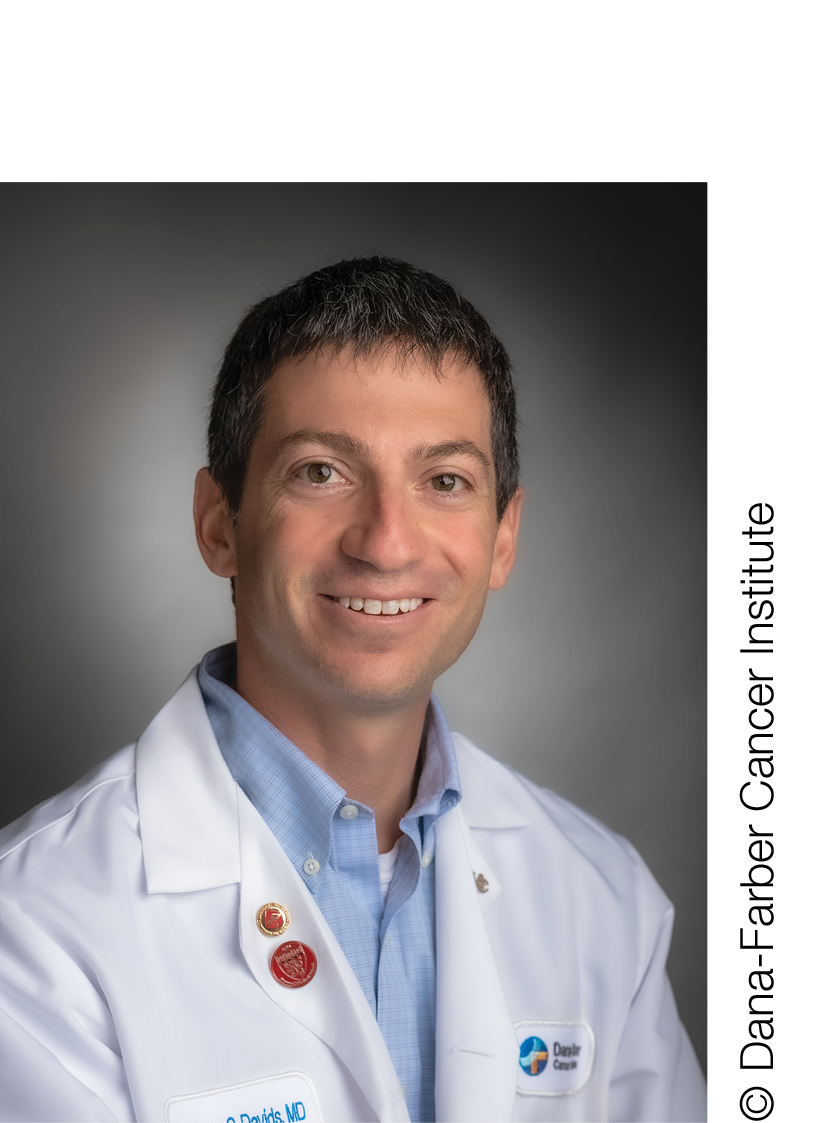Preface – EHA 2022
Matthew S. Davids, MD, MMSc – Department of Medical Oncology, Dana-Farber Cancer Institute, Harvard Medical School, Boston, MA, USA
Dear Colleagues,
After 2 years of the COVID-19 pandemic, the Annual Meeting of the American Society of Clinical Oncology, held in Chicago, USA, and virtually from 3rd–7th June 2022, featured nearly 250 oral as well as over 2,200 poster presentations. Shortly thereafter, the 27th Congress of the European Hematology Association 2022, held in Vienna, Austria, and virtually, from 9th–12th June 2022, saw leading experts from around the world gather again to further discuss the most exciting updates in the field of hematology with key updates summarized in 200 oral presentations and 1,400 posters.
Over the last two decades, several new drugs have been approved for the management of CLL, and the field continues to undergo highly relevant improvements. The use of drug combinations with synergistic or at least additive efficacy but non-overlapping toxicity helps to keep an eye on health-related quality of life, not only for untreated but also for heavily pretreated patients. This issue of memo inHaematology offers a synopsis of treatments including BTK inhibitors that represent an essential pillar in the management of CLL and play an important role in other B-cell malignancies including marginal zone lymphoma.
Early-phase trials are outlined that demonstrate encouraging results with high response rates in patients with relapsed or refractory large B-cell lymphoma including DLBCL independent of age, disease subgroups, previous CAR-T therapy, and treatment lines. New strategies to overcome on-target resistance mutations emerging from BTK inhibitor treatment are introduced, as well as trial updates and real-world insights in the setting of Waldenström’s macroglobulinemia. Next-generation BTK inhibitors for the treatment of mantle cell and follicular lymphoma are on the rise. Novel PI3Kδ inhibitors continued to be explored in relapsed and refractory follicular lymphoma.
Last but not least, this issue looks closely at patients with acute myeloid leukemia whose standard therapy has long consisted of intensive chemotherapy followed by allogeneic hematopoietic stem cell transplant. Recent years have seen major advances due to accurate genetic classification and treatment with hypomethylating agents, venetoclax, and nucleoside analogues. Lately, a first-in-class anti-CD47 antibody and a potent, highly selective investigational BCL2 inhibitor have shown encouraging antitumor activity.
Once again, the two congresses showed that education on the latest advances in oncology accompanied by the best practices and promoting equal access to optimal cancer care for all patients is necessary to get closer to fulfilling the core mission of oncologists worldwide, who all pull together to improve the quality of cancer treatment, from prevention and diagnosis all the way to palliative care and patient follow-up.
© 2022 Springer-Verlag GmbH, Impressum





